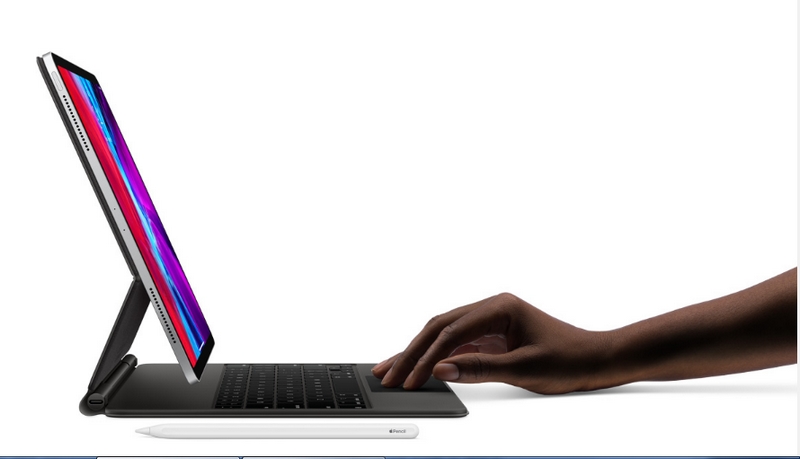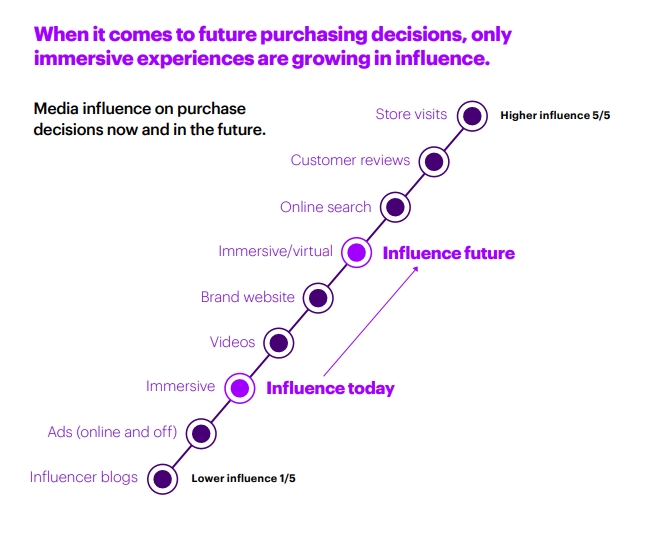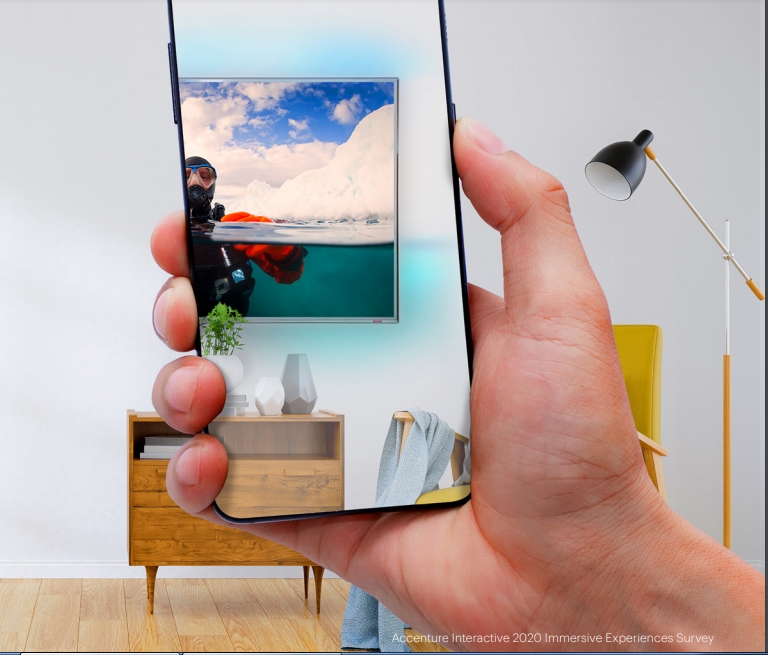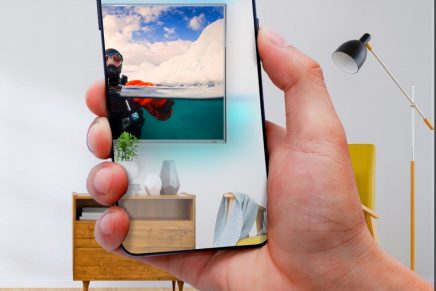The time to reimagine digital commerce is now: Consumers are ready for a revamped online shopping experience. Report.
The recent impact of COVID-19 has drastically shifted consumer behavior, with shoppers now embracing new immersive technologies related to online shopping. Consumers want to shop online without sacrificing purchasing confidence. The new wave of digital commerce sparks nearly two-thirds of leading consumer brands to start investing in immersive experiences, according to the new Accenture Interactive Report.
Report finds 47 percent of consumers say they would pay extra for a product if they could customize/personalize it using immersive technology.
The report reveals immersive technologies such as augmented and virtual reality and 3D content can enhance consumer purchasing
confidence and increase online sales.
The “Try It. Trust It. Buy It.” report suggests that as companies increase their focus on immersive technologies — 64% of leading consumer brands are starting to invest in augmented reality, virtual reality, 3D content and 360-degree video — they should shift their thinking from investing in one-off experiences to driving scale and efficiency to these experiences. In fact, the research found that immersive experiences can boost consumer confidence in an online purchase by 4% globally — and by 9% in North America.
“The time to reimagine digital commerce is now, as consumers are ready for an evolution of the online shopping experience — especially in the wake of COVID-19,” said Rori Duboff, a managing director for strategy and innovation at Accenture Interactive. “Brands need to understand how the rapidly accelerating area of immersive technology can help drive scale in this new era of online shopping.”
The research found that consumers are ready for a revamped online shopping experience, with nearly half (47%) saying they would pay extra for a product if they could customize it or personalize it using immersive technologies. The study also found that consumers are open to purchasing more big-ticket items, such as cars and luxury goods, online.
Consumers also see immersive technologies as foundational for online shopping experiences in the future. For instance, three in five consumers (61%) said they would be more likely to buy from a brand that uses immersive technologies.
Immersive experiences help consumers understand how a product will look on them or in their environment.
YouTube offers an AR solution that people can use to virtually tryon cosmetics. MAC Cosmetics was the first brand to leverage it. Consumers can test out MAC lipstick and shop while watching makeup tutorials. It’s a fresh fusion of technology, instore experience, influencers and creativity. Always an innovator, Nike has turned to AR to help consumers get the right fit for their shoes. Consumers use the Nike Fit feature on Nike’s app to measure their feet with their smartphones and get guidance on the right size in a specific style.6 Solutions like this offer exciting possibilities to answer the age-old “will it fit?” question for online shoppers.
“However, brands must be mindful of consumers’ concerns about data privacy and be transparent about how personal data is being used to provide such experiences,” added Accenture in the report.
Among some of the report’s other findings:
More than half (48%) of consumers would better remember brands that regularly engage them with immersive technologies.
More than half (47%) of consumers said they are likely to engage with a product using immersive technologies if it provides personalized recommendations to suit their needs.
“Unlike anything else in digital commerce, immersive experiences provide accessibility and tangibility,” Duboff said. “When a few clicks let you see a designer handbag in 3D or a 360° view of a mountain top getaway, and augmented reality lets you see if a lipstick color works with your skin tone, you’re that much closer to experiencing the truth about the product.”
Accenture Interactive surveyed 3,087 consumers across North America, Europe and the Asia Pacific region who relied on immersive technologies to evaluate and/or purchase a product and/or service online over the previous six months.







